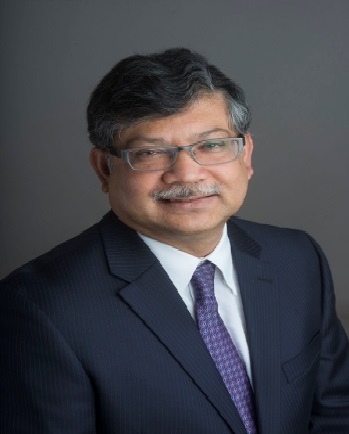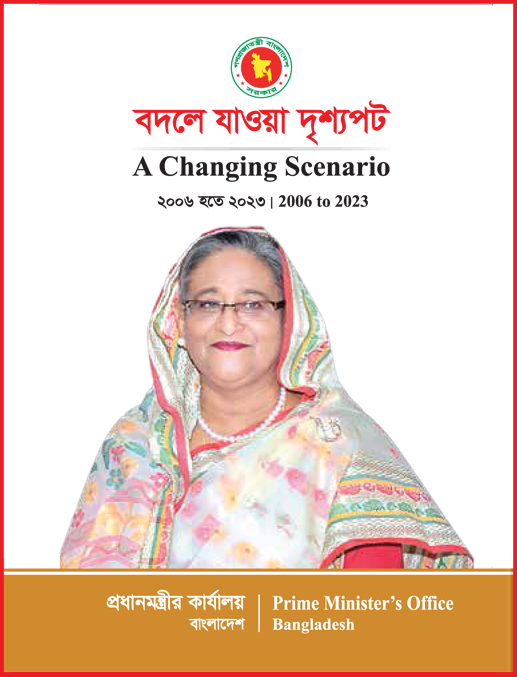Statement by H. E. Md. Shahriar Alam, MP Hon'ble State Minister for Foreign Affairs at the Fourth Indian Ocean Conference Male, 3 - 4 September 2019

Chairperson of the Conference,
Hon'ble Ministers,
Excellencies,
Ladies and Gentlemen,
I am pleased to join you all at the fourth Indian Ocean Conference. Let me convey our deep appreciation to the Maldives for hosting the fourth edition of the Dialogue. I also commend India Foundation for providing exemplary support to this Dialogue process over the past years.
Since the First Dialogue in India in 2014, Bangladesh has been actively participating in the process. Looking at the Bay of Bengal, Dhaka has been open-endedly engaging with friends in articulating an objective narrative on Blue Economy. Right today, Dhaka is also hosting the lORA Blue Economy Ministerial Meeting.
So, let me delineate our broad outlook Bangladesh's approach to the blue sphere, indeed the Indian Ocean.
First, as a fast-growing economy, Bangladesh believes, amity and stability in the Indian Ocean countries is crucial, for each of our countries. Its about getting peace- harmony - stability - pluralism right across the littoral countries and societies around the Indian Ocean region - individually as well as collectively. It is about affirming our belief and further consolidating the civilizational chords centering the Indian Ocean and its adjoining Seas and Bays.
Second, for centuries, our Ocean has been nourishing economic, social and cultural connects between and among two billion people around this vast oceanic space. Within the vast Indian Ocean, a number of smaller Seas and Bays bear distinct identity and features. Those need appreciation and careful nurturing. As Indian Oceanic routes become far more busier, slightest political - social – cultural turbulence in any of the littoral State may create disruptions. Increasing movement of trade in goods and services only warrants much greater interactions through dynamic narratives across our peoples. Therefore, our narratives and thoughts need to transcend beyond the facts that Indian Ocean carries half of global container shipments or, one-third of the global bulk cargo traffic or, two-third of global shipments.
Third, as an Indian Ocean as also Bay of Bengal littoral State, Bangladesh is striving to advance. That is where Prime Minister Sheikh Hasina situates her aspirational Vision 2041 of developing Bangladesh. At a larger plain, as all the littoral States collectively strives to grow, we need to ensure that the Indian Ocean region and the adjoining Seas and Bays prosper based on mutual trust and respect and with an understanding of equality of interests. Yes, it is expected that countries will compete with each other in respective development journey, but not undermining others' growth prospect or discounting others' circumstances. No country can falter on securing these fundamental principles. Otherwise, attainment of collective security and sustainable development in wider India Ocean region would remain far cry. At the end, it is about securing 'shared prosperity through shared responsibility', as our Leaders unequivocally signed to in adopting the universal Agenda 2030 for Sustainable Development.
Fourth, the Indian Ocean littorals constitute over 40 developing countries and 40% of global population. We offer a vast market, with fast emerging Middle and Affluent Class. Ours is the region that will continue to grow fastest out of all other regions for next decade. So, we would need to plough the benefits out of economic cooperation, out of our rising prosperity. Over the decades, our region is dotted with several creatively crafted regional and sub-regional cooperative frameworks like BIMSTEC, GMS. Discussion in countries are afoot about concluding Bilateral or Regional FTAs as well. Some of the regional organisations are engaged in advancing result-oriented trade creation, increasingly focussed on Services. However, results have been mixed. In many instance, in key areas like Trade - Transport - Energy connectivity, our countries are yet to materialise low-hanging fruits or, roll out cross-border projects. With modest successes in our part of the world, Bangladesh believes that the Indian Ocean region ought to creatively engage in regional economic cooperation and integration. We need to forthright engage on practical, collaborative initiatives in areas like Agriculture, Education, Health, Hospitality, higher learning, Digital Technology, SMEs. Our engagements should yield in development of many regional or sub-regional value chains. Indeed, we need far more creative ideation than financing to move ahead.
Fifth, a key challenge is to unlock maritime connectivity across Indian Ocean and all its Bays and Seas in every possible way. Its indeed an opportunity. Bangladesh for instance is vigorously pursuing Coastal Shipping Agreement. We already have one with India. Another one with Sri Lanka is nearing finalisation. We look forward to materialising the BIMSTEC Coastal Shipping Agreement. We foresee that criss- crossing shipping connectivity will unlock opportunities across Bay of Bengal for goods and people, development of numerous supply chains and create new regional political and economic dynamics. Eventually, this should contribute to a robust narrative for the region that is yet unforeseen.
Sixth, today, we all emphasize on ensuring maritime safety and security in blue waters. Bangladesh for instance has peacefully delimited maritime boundary with her neighbours -India and Myanmar - several years back. We realise that resolving such intricate issues and consequently engage on exploring potential in maritime resources within Blue Economy require wisdom and creative appreciation of issues beyond the horizon. I feel that, resolution of certain issue may often require us to look at given issues as much as through the prism of political sovereignty as also of wider national interests.
Seventh, there is a need to uphold and further build the contours of maritime cooperative security architecture based on collective security and shared responsibility across the Indo-Pacific region. So far, we all stand up to "zero tolerance" towards terrorism and violent extremism. But, Indian Ocean remains prone to range of non-conventional security threats like maritime piracy, armed robbery, maritime terrorism, human trafficking, trafficking of arms and narcotics.
We all must initiate appropriate actions to combat all such trans-national security challenges across the Indian Ocean, including those posed by non-state actors. A comprehensive security architecture in Indian Ocean region calls for mutual cooperation, collaboration and seamless interaction among various public and private institutions. This provides for political and strategic framework as to effectively and comprehensively address maritime security challenges through improved cross-sectoral cooperation within, between and across civilian and military authorities.
Eighth, Indian Ocean region is seriously challenged by over-exploitation of her oceanic wealth. There is much little mapping and observation of the oceanic health, for instance of Bay of Bengal. Our Bay is one of the most unmapped in the world while reached by one seventh of global population. Sizable part of the Bay is threatened by over-fishing. We hear of significant dumping of toxic liquid and solid wastes, plastics in the Bay. That is particularly rampant beyond our EEZs. Recently, a vast 'dead zone' as large as 60,000 square kilometre has been traced in the Bay of Bengal with little traces of life. While adverse effects of climate change in the Bay is yet unmapped fully, we hear also hear of rising ocean acidification. All these can seriously risk livelihoods of vast majority of our artisanal fishermen and population along the coast. This goes well beyond creating maritime domain awareness. As much as in the Bay of Bengal, Bangladesh would call upon all to concretely engage on all the Seas and Bays in the Indian Ocean to conserve our common wealth. This is so much evident when we see all kind of climate change impacts so much evident in countries like Bangladesh or Maldives.
Ladies and Gentlemen,
It is thus time for all our countries and dialogue partners present in this Hall to make a beginning, as modestly as we may wish. We can well consider formulating a few projects for economic co-operation, to begin with. We can also engage in modest menu of people-people cooperation to develop shared interests, wider networks and reap mutually beneficial results.
In that journey, Bangladesh would hope that the interests - needs - circumstances of countries with distinct disadvantages or lesser endowment should need to be kept in view as well.Bangladesh believes, Indian Ocean Region has enough of knowledge - expertise - experience to re-connect or connect our peoples - communities - countries, as we may chose.
Choice is indeed ours.
I thank you all.













